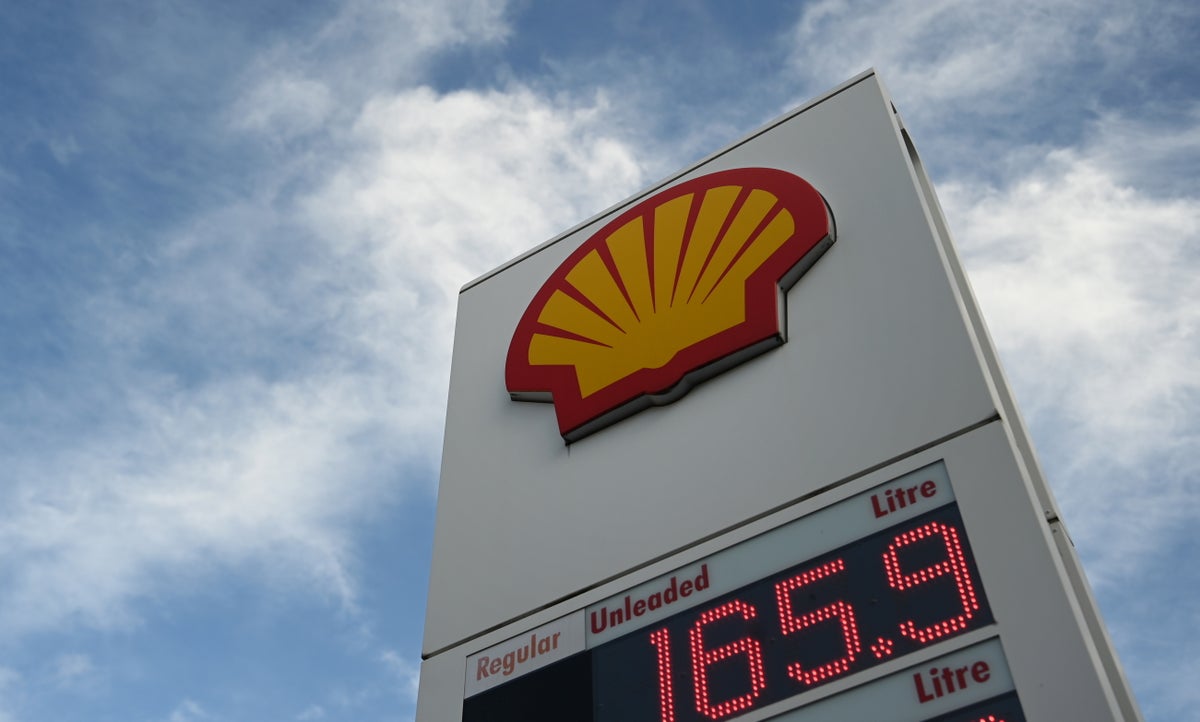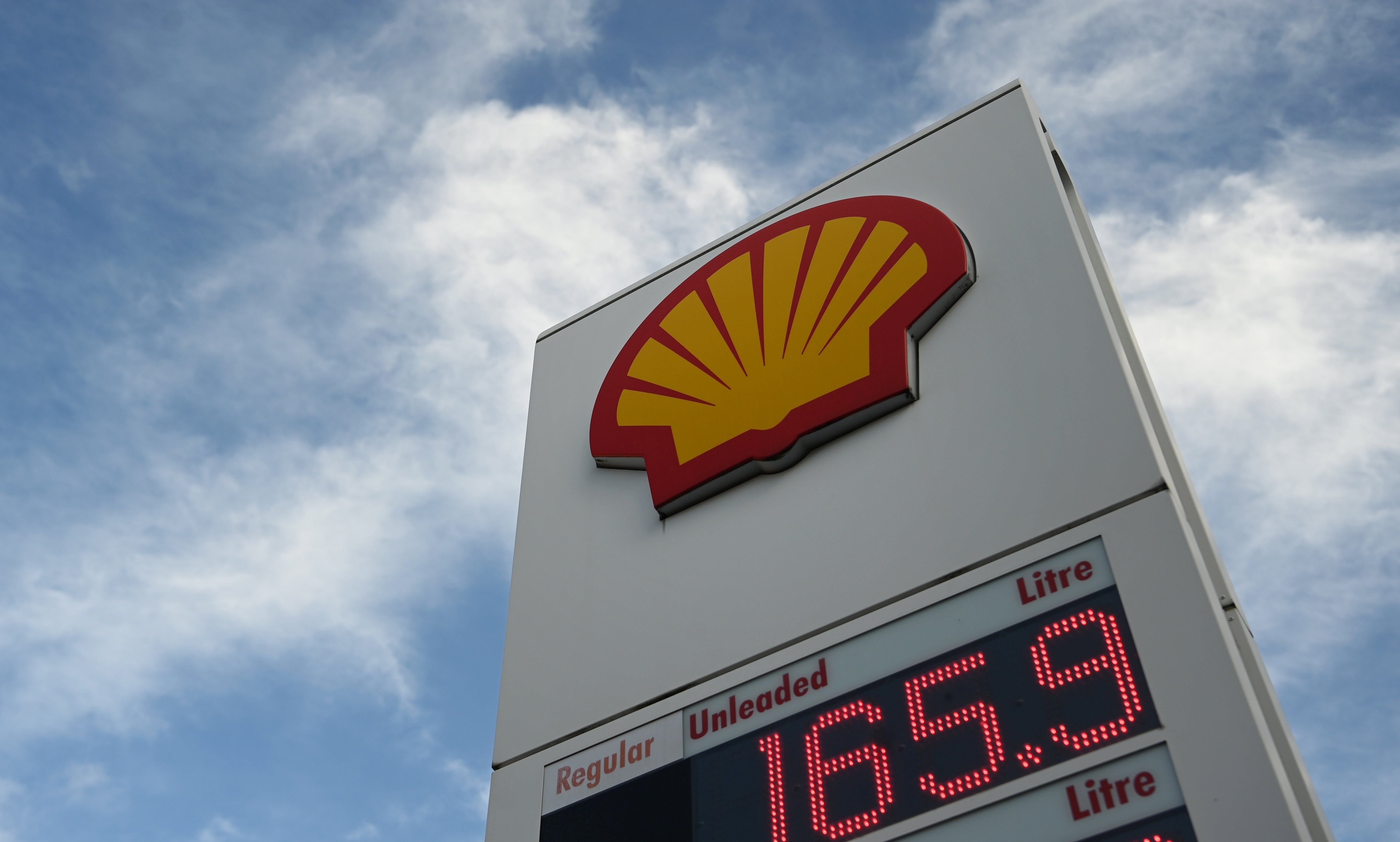
Shell recorded the highest profit in its 115-year history as it benefited from soaring oil prices driven by Russia’s invasion of Ukraine.
Profits increased by 53 per cent to £68.1bn in 2022, while earnings adjusted for taxes doubled to £32.2bn – sparking calls for Rishi Sunak’s government to expand the windfall tax on profits.
The £32.2bn figure is more than double the government’s entire budget for environment (£13.9bn) and a third of the education budget, which is £100bn.
Labour, the Liberal Democrats and climate change campaigners said the government was letting fossil fuel companies “off the hook” by failing to impose a strong enough tax on the “proceeds of war”.
Ed Miliband, Labours shadow climate secretary, said ministers were letting “the fossil fuel companies making bumper profits off the hook with their refusal to implement a proper windfall tax”.
“But when it comes to oil and gas interests, Rishi Sunak is too weak to stand up for the British people,” said the frontbencher.
Mr Miliband said Labour would stop the energy price cap going up in April, adding: “It is only right that the companies making unexpected windfall profits from the proceeds of war pay their fair share.”
Liberal Democrat leader Sir Ed Davey said: “No company should be making these kind of outrageous profits out of Putin’s illegal invasion of Ukraine.
“Rishi Sunak was warned as chancellor and now as prime minister that we need a proper windfall tax on companies like Shell. They must tax the oil and gas companies properly and at the very least ensure that energy bills don’t rise yet again in April.”
Chancellor Jeremy Hunt announced in November that the energy profits levy, as the windfall tax is known, will rise from 25 per cent to 35 per cent – expected to raise an extra £14bn a year.
Shell said it paid £1.5bn in windfall tax charges to the UK and EU in 2022. But climate campaigners and union bosses said it was not enough to help fund an insulation drive and more support for struggling families.

Friends of the Earth’s Sana Yusuf said the latest Shell profits were “staggering”, considering that “millions of people have been facing the impossible choice between putting food on the table and heating their homes”.
The campaigner added: “Fairly taxing their excess profits could help to fund a nationwide programme of insulation and a renewable energy drive.”
Greenpeace’s Elena Polisano said Shell was “profiteering from climate destruction”, adding: “While Shell counts their record-breaking billions, people across the globe count the damage from the record-breaking droughts, heatwaves and floods this oil giant is fuelling,” said Elena Polisano.
The Green Party said the record profits made the “undeniable case” for a new carbon tax – £100 per every tonne of carbon dioxide emitted, rising to £500 by 2030.
Green co-leader Carla Denyer: “These profits give the lie to any claim that fossil fuel giants will act responsibly when there is still money to be made from destroying our planet.”
Shell’s £32.2bn profits: how does it compare to public spending?
UK government spending for 2021-22:
- NHS and social care: £216.8bn
- Welfare: £298.7bn
- Education: £100.3bn
- Defence: £48.6bn
- Police and public safety: £42.3bn
- Housing and communities: £15.3bn
- Environment: £13.9bn
TUC general secretary Paul Nowak said the “obscene profits are an insult to working families” as the union called for a larger windfall tax. “The time for excuses is over,” he said.
Mr Nowak added: “Instead of holding down the pay of paramedics, teachers, firefighters and millions of other hard-pressed public servants, ministers should be making big oil and gas pay their fair share.”
Meanwhile, British Gas has announced it will stop applying for court warrants so debt collectors can fit prepayment meters, following reports they had been forced on “vulnerable” customers.
The Times reported that British Gas had been sending debt collectors to “break into” people’s homes and fit pay-as-you-go meters – even when customers are known to have “extreme vulnerabilities”.
Energy regulator Ofgem has also announced it will launch an investigation, while business secretary Grant Shapps said he was “horrified” by forced fitting of prepayment meters.
As anger about energy giants’ activities during the cost of living crisis grows, Shell also announced a 15 per cent dividend increase and a £3.2bn share buyback programme as part of its record profits.
Shell’s chief executive Wael Sawan said the results for the fourth quarter of 2022 and across the full year “demonstrate the strength of Shell’s differentiated portfolio, as well as our capacity to deliver vital energy to our customers in a volatile world”.
He added: “We believe that Shell is well positioned to be the trusted partner through the energy transition. We intend to remain disciplined while delivering compelling shareholder returns.







